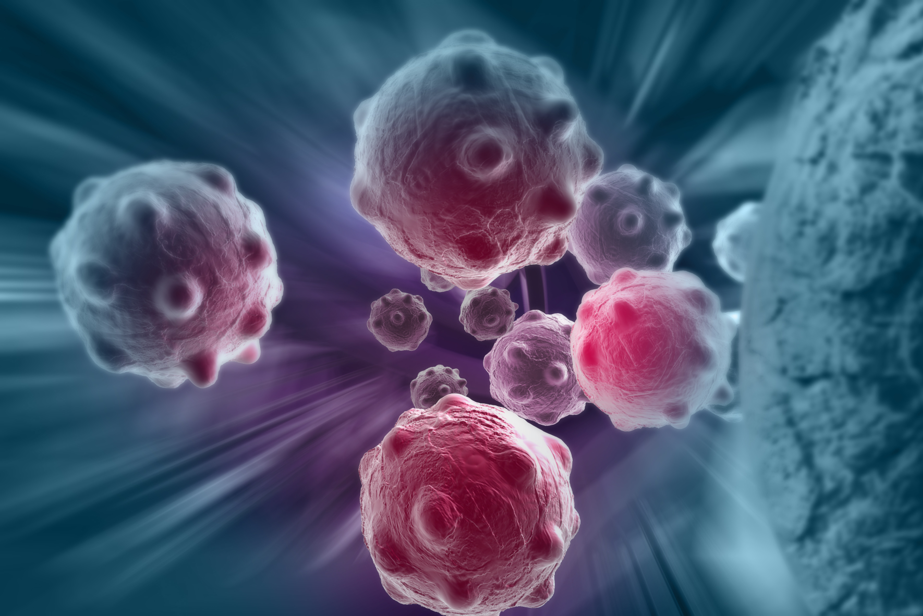COVID-19 & Cancer follow-up: how COVID-19 impacts drug development in the field of oncology

In April 2021, Alcimed published an article on how COVID-19 impacts the quality of life of cancer patients. Major implications discussed were the delayed diagnosis and treatment that reduced patients’ quality of life. Furthermore, the article discussed the risk of social distancing and its potential negative effect on the quality of life for patients and its link to increased risk behavior. In this follow-up article, we shed a light on the latest effects of Covid-19 on drug development in the field of oncology. There are three key stages in drug development: 1) Research and Development, 2) Authorization processes and 3) Market and Patient Access. These phases have all been affected by the Covid-19 pandemic. In this article, Alcimed will highlight changes for each stage in more detail.
COVID-19 and R&D: a slower development of new oncology treatments
Globally, several clinical oncology trials have stopped during the pandemic. Some of these experimental therapies were the last hope for advanced cancer patients. Furthermore, the results of these clinical trials are key for the further development of new cancer drugs. A global survey in May 2020 found that almost 20% of brain tumor patients could no longer enroll in clinical studies because of COVID-19. In July 2020, more than 20% of all global oncology trials were stopped because of the pandemic. Globally, a decrease in patient enrolment has been found in studies: patients with vulnerable immune systems were staying at home, and restrictions in traveling prevented participants from enrolling in clinical trials. Overall, the pandemic impacted breast, lung, and prostate cancer trials the most.
Clinical trials that were continuing had to change their protocols. For example, domestic transportation for patients was limited, meaning patients had to be examined on distance or had to skip a complete examination. An example of this is Japan, where domestic flights were canceled from April 7 to May 25, 2020. These changes in the protocols might influence the data and thereby the perception of efficacy amongst stakeholders. Apart from stopping or delaying trials, facilities, research infrastructure, and funding have been repurposed for e.g., Covid-19 trials. All these factors could contribute to the slower development of new oncology treatments.
On a more positive note; the Covid-19 pandemic has boosted the understanding of mRNA technology. This could potentially be interesting for future oncology patients with rare indications as they currently face limited treatment options. Covid has shown that mRNA vaccines can be safe and efficacious. Currently, several clinical trials are recruiting to measure the tolerability, safety, and efficacy of mRNA vaccines for various types of cancer.
Learn more about our experience in mRNA technology >
COVID-19 and authorization processes
During the pandemic, dedicated taskforces have been set up at the European Medicine Agency (EMA) to ensure that the market authorization speed would not suffer from the burden of rapid evaluations of Covid-19 vaccines. Despite these efforts, delays have occurred.
On the positive side: the pandemic might speed up the regulatory approval pathways as it gave a clear push for acceleration in regulatory approval pathways and improved collaboration. This could accelerate drug development in the future.
COVID-19 and market and patient access to cancer treatments
After receiving authorization from the EMA, countries are taking decisions on the reimbursement of newly developed treatments. In Europe, this is often based on a health technology assessment (HTA). This is a multidisciplinary process that uses systematic and explicit methods to evaluate the properties and effects of a health technology. The HTA processes in countries have slowed down as the committees’ staffing challenges and the assessment of non-Covid-related therapies has not been a priority.
Patients’ access to new treatments has also been affected. Currently, some patients are suffering from decreased access to new treatment options due to the decrease in ongoing clinical trials and doctors being reluctant to start certain types of medication in times where access to hospitals might be restrained. In the longer run, it is yet unclear how COVID-19 vaccination will impact treatment of oncology patients. Many anti-cancer therapies require a compromise of immunity in order to kill cancer cells. This means patients could be more susceptible to Covid-19 or patients could have more difficulties generating an antibody response after a Covid-19 vaccination. Data is not yet available to conclude how chemotherapy interferes with Covid-19 vaccination or treatment.
In conclusion, Covid-19 has a negative influence on drug development in the field of oncology, with all relevant phases of the process affected. Even though the negative effects of the Covid-19 pandemic on drug development in oncology are countless, the pandemic might have also shifted current practices. The Covid-19 wave has for example pushed a rapid adaptation to new and innovative clinical practices such as remote monitoring. Furthermore, the pandemic might speed up the regulatory approval pathways and promoted global trial collaborations and new treatment options might be developed based on the increased understanding of mRNA technologies. This could accelerate drug development in the future, leading to more and better treatment for cancer patients. Want to explore and develop new treatments in oncology? Our team is here to support you at every stage of your project, from your market access strategy to your product launch and beyond!
About the author,
Volker, Great Explorer Oncology, and Hannah, Consultant in Alcimed’s Healthcare team in Germany
Do you have an exploration project?
Our explorers are ready to discuss it with you